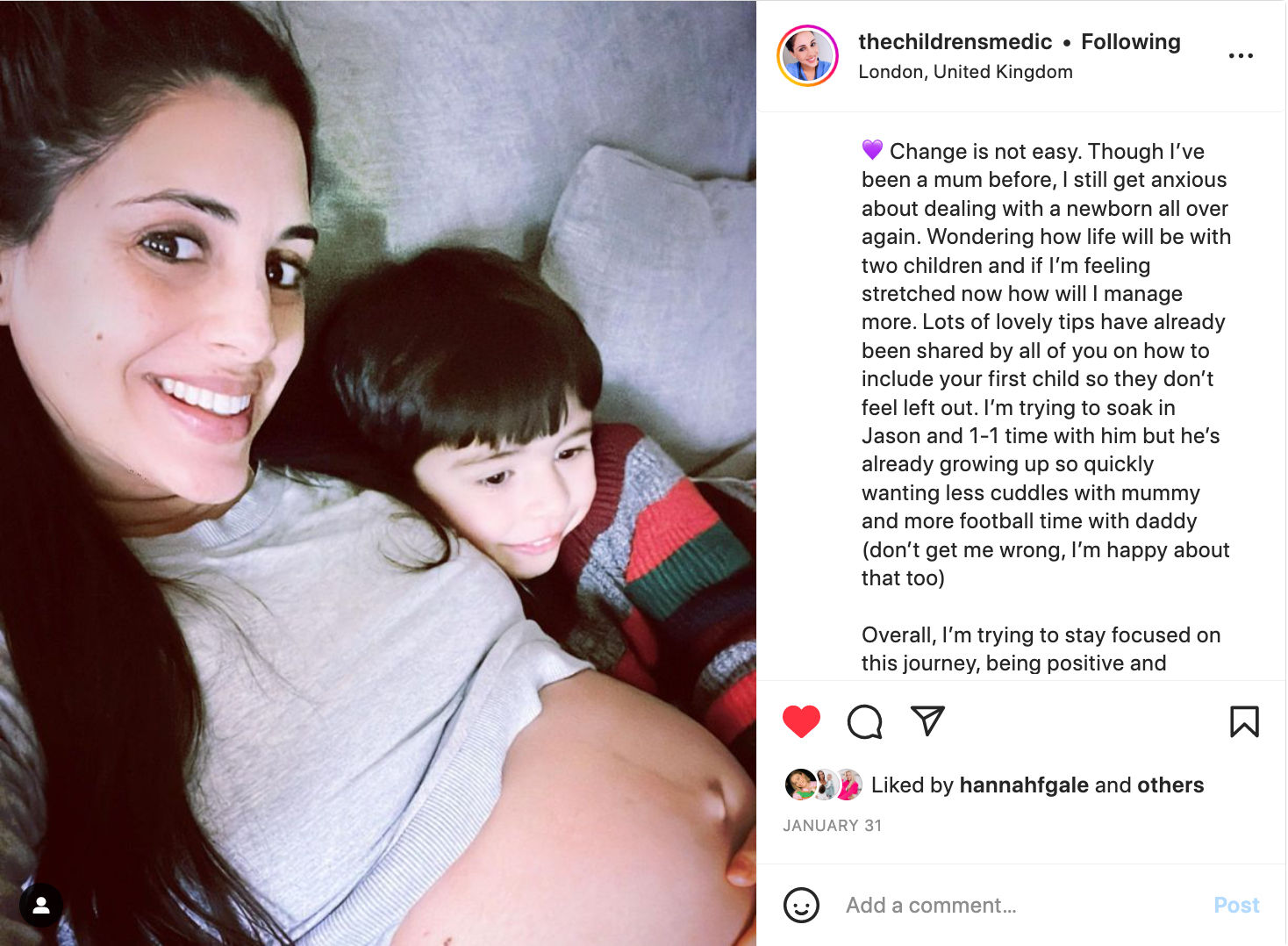Use arrow keys to navigate through the menu items. Use Tab key to navigate through the menu banners.
5 of the Best Pregnancy Vitamins

5 of the Best Pregnancy Vitamins
With up to 50% of mums-to-be deficient in certain vitamins, a supplement can be a good choice. Get the lowdown here
We all know that healthy eating is important during pregnancy. It's easier said than done, though, when the first 12 weeks consist of cravings for beige carbs with a side serving of beige carbs – that's if you can stomach anything at all.
Things aren't much easier come the third trimester when fatigue and a growing bump have many of us reaching for the sugary snacks.
It’s perhaps no surprise, then, that a whopping 30-40% of pregnant women are estimated to be iron-deficient and as many as 50% deficient in vitamin D.)
So, which vitamins are most valuable for mamas-to-be? And how can you ensure you're getting enough?
Which vitamins do I need to take during pregnancy?
‘Eating a varied, balanced diet will ensure you’re well-equipped with the vitamins and minerals needed in pregnancy. However, there are two supplements that all pregnant women need to take since it's difficult to obtain the levels required from food alone,’ explains NHS doctor Dr Shruti Nathwani (@thechildrensmedic).
‘A daily folic acid supplement of 400 micrograms is recommended when you're trying to conceive and until you're 12 weeks pregnant. The synthetic form of vitamin B9, this can help prevent neural tube defects (birth defects of the brain, spine or spinal cord).
‘You should also take a daily vitamin D supplement of 10 micrograms throughout pregnancy. This hormone is produced when you're exposed to sunlight and is needed to support healthy bones, teeth and muscle development in both you and your baby.’

What other vitamins and minerals are important for mums-to-be?
Iron
-
Iron is needed for healthy red blood cells which carry oxygen around the body. In pregnancy, the amount of blood in your body increases by almost 50%, meaning iron is even more important.
-
Routine midwife blood tests will show if you're low in iron, which can cause symptoms of tiredness, breathlessness and heart palpitations.
-
Iron is found in lean meat, green leafy vegetables, dried fruits, nuts and some fortified breakfast cereals. You may require supplements to top you up when pregnant – these usually come in the form of ferrous fumarate tablets. Don’t buy iron supplements yourself. Instead, speak to your midwife or GP if you want to get more information or feel you might need supplements.
Vitamin C
-
This is important for cell health and the development of your baby's tendons, bones and skin.
-
Vitamin C is found in lots of fruit and vegetables with oranges, red peppers, strawberries, blackcurrants, broccoli and potatoes, all good sources of it.
Calcium
-
This is crucial for making your baby's bones and teeth.
-
You'll find calcium in milk, cheese, yogurt, green leafy vegetables, tofu, bread and foods made with fortified flour or fortified soya drinks.
Other key nutrients for growing a mini-me? Iodine – needed to produce thyroid hormones and the development of your baby's brain – and DHA (an omega-3 fatty acid) that supports their brain, eyes and nervous system.
You may wish to take your folic acid and vitamin D separately or as part of a pregnancy-friendly multivitamin, particularly if a blood test has shown you to be lacking in something or if you’re finding it hard to stomach a variety of nutritious foods.
Can taking vitamins make morning sickness worse?
If you’re feeling peaky after taking supplements, iron could be the culprit.
‘Studies show that the iron component in some prenatal vitamins can make nausea and vomiting symptoms worse in the short term. In this instance, you can consider taking a prenatal vitamin with a lower dose of iron or one that doesn’t contain iron. Speak to your GP or midwife before taking this step if you’ve been shown to have iron deficiencies,’ says Dr Shruti.
It’s something Kate Morris, who is currently 34 weeks pregnant with her first baby, has experienced. ‘My sickness suddenly came back in my third trimester, and I just couldn’t figure out why. It turns out my body couldn’t handle the iron tablets I was taking.
‘My midwife advised taking a liquid iron supplement instead, as these can be gentler on the stomach. The switch worked for me and within a few days, I had much more energy and the sickness had disappeared.’
It’s also important to follow the instructions stated on the packaging. Some vitamins should be taken with food while others require an empty stomach. And did you know iron should be taken alongside vitamin C to properly get to work? Dairy and antacid heartburn remedies, on the other hand, can prevent its absorption so opt for a glass of orange juice with your iron supplement – and wait at least two hours after consuming milk or dairy products.
Natalie Bradley, mum to Joseph, 13 months, experienced her own issues when taking vitamin D. ‘I’m usually fine popping tablets but I found I just couldn’t stomach them during pregnancy. Instead, I tried an oral vitamin D spray which worked much better for me,’ she tells us.
Noticed tablets are triggering your sensitive pregnancy tum, too? ASDA offers all kinds of vitamin formulas from liquid supplements to pastilles and sprays so you can choose the one that’s best suited to you.
Which vitamins should you avoid during pregnancy?
Vitamin A, also known as retinol, can help with vision, skin and fighting illnesses but taking too much can harm your baby's development. Steer clear of any supplements containing vitamin A while pregnant, as well as liver or fish liver oil products since these are very high in it.
Can I get free vitamins during pregnancy?
Your GP might be able to prescribe certain vitamins during pregnancy. Some people on low incomes, who are more than 10 weeks pregnant or who have a child under 4, may also be entitled to the government's Healthy Start scheme.
This scheme provides free vitamins as well as healthy food and milk. Speak to your midwife or health visitor to find out if you're eligible, or get more information here. If you are entitled to help, you can find out where to collect your free vitamins here.
Help & Customer service
- Help Centre
- How to shop
- Product recalls
Payment Methodslist with 8 items
- Asda Group of Companies
- Modern Slavery Statement
- Electrical Waste Recycling
- Terms & Conditions
- Customer Review Policy
- Privacy Centre
- Cookie Settings
- Accessibility
© ASDA 2025